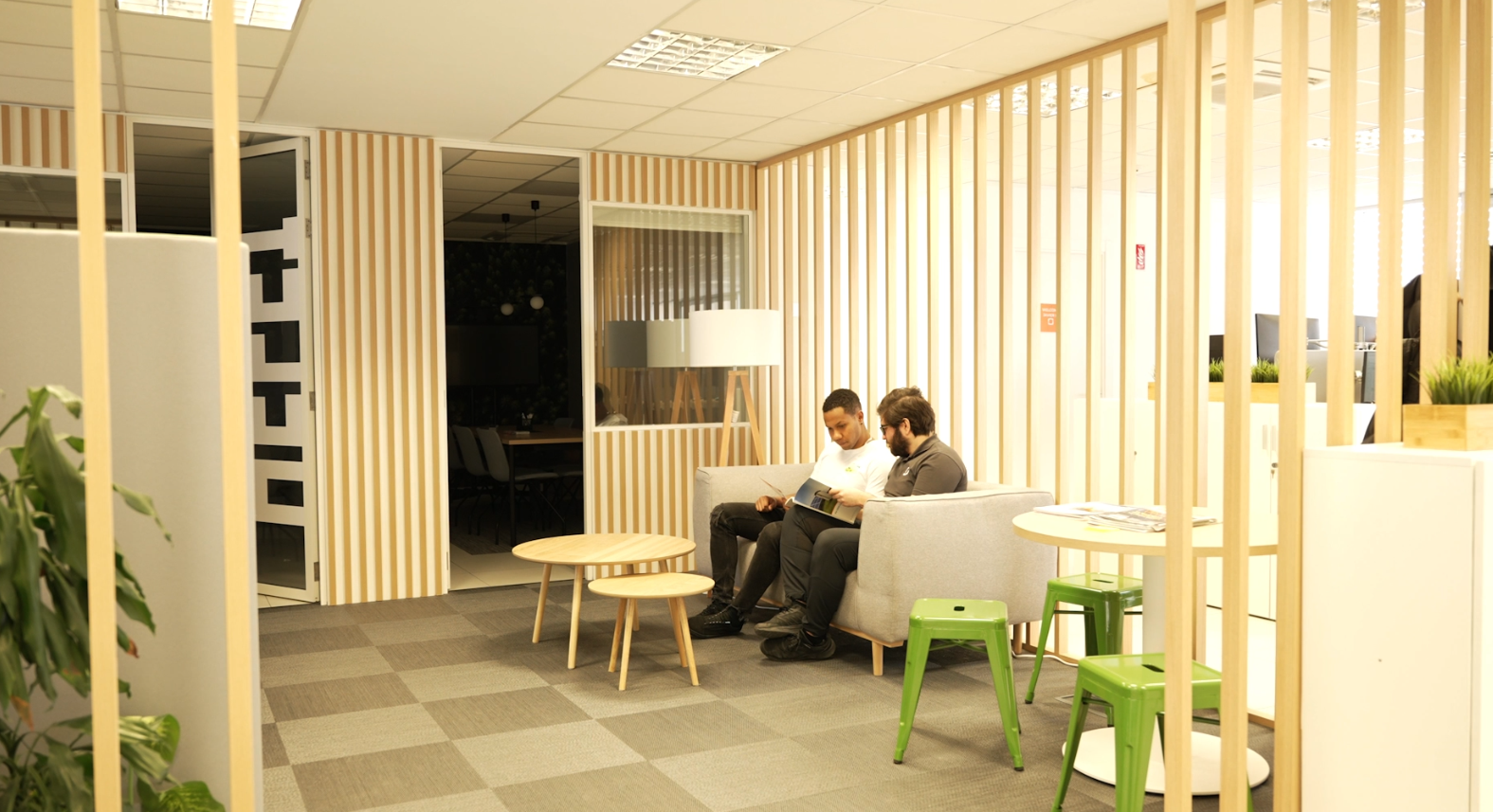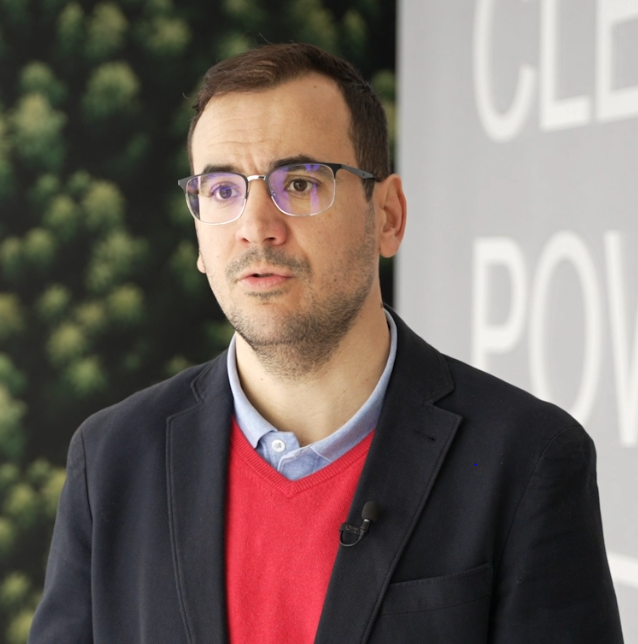
Sungrow Ibérica’s presence in Navarra is due to the fact that its current director, Javier Izcue, was convinced that the region would be an ideal place to implement an ambitious business plan in the field of renewables. The strategy he designed convinced the managers of this Chinese multinational specialising in photovoltaic inverters. And they were not wrong. In these years, they have achieved a turnover of over 100 million euros and have become a key region for the multinational’s strategic plans. In this interview, Izcue tells us the keys to their success.
We offer services related to photovoltaic inverters. We are the world’s largest manufacturer of photovoltaic inverters and have several divisions: inverters for residential self-consumption; for industrial self-consumption and for large photovoltaic plants. In addition to inverter manufacturing, we are also integrators of storage systems and battery manufacturers, a sector in which we also offer converters for this application.
We have also started a new line of business focused on electric car chargers. We also conduct different R&D projects where hydrogen is going to be a fundamental factor in the short term, perhaps next year.
Navarra, as you well know, is characterised by the fact that it was a national pioneer in renewable energy. There are large companies in the sector, including other manufacturers of photovoltaic systems, as well as large entities such as Acciona and the National Renewable Energy Centre. I have been working abroad for eight years, but I am from Navarra and I am a strong advocate of the region. As they say, we can’t forget our roots and this factor, together with the fact that the regional government offers facilities for setting up companies in Navarra, led us to promote the project of establishing Sungrow Ibérica in the region.
At the time, I presented Sungrow’s management with a business plan explaining all the benefits we had, especially focused on the proliferation of companies in the sector, the facilities provided by the government, aid for R&D, as well as local talent, which is one of the pillars for starting up the company, based on the two large universities. These were the keys to convincing Sungrow’s managers.
As far as the institutions are concerned, Sodena has always been attentive to us and has kept us informed of their activities at all times. We also work with them in working groups to think about how we can make Navarra more attractive to large companies. In short, it was these working groups, as well as the financial institutions that backed us at the beginning and the staff who believed in the project that made it possible for it to develop successfully.
We have managed to grow exponentially in recent years, reaching a current turnover of more than 100 million euros and an impact of more than 300 million euros. Therefore, both Sungrow Ibérica, which includes Spain and Portugal, and the southern European area, because I was recently appointed as director of southern Europe, have been key to the company’s plans.
I believe that the group sees us as a fundamental pillar because the large companies in the sector in the region not only work in the European region, but also in other continents. In fact, the impact we have on a global level is very important, because during the years of the economic crisis, when solar energy was not being installed in Spain, national companies had to go abroad, and thanks to this, today they are world leaders. Many of them are from Navarra.
Well, it depends on who you ask. If you ask the global managers, they will probably tell you that there is no ceiling. For my part, I think that these numbers, around 30 or 40% market share, are hard to beat. We believe we are here to stay, we are going to continue working along these lines and developing new lines of business, especially in the area of storage, the electric car charger and the development of hydrogen and electrolysers.
I think now is a very good time, with a boom in renewable energies. There is a very ambitious plan for the next decade and it is incredible what is going to be developed. The authorisations for all the parks that are going to be promoted at national and regional level were recently published. But it is also true that there are a lot of documentary obstacles and it is also difficult to find talent. It is difficult to find electricians and technicians. This is something that affects all manufacturers, the whole sector in general. And the diagnosis is very good, with communities that are betting a lot on energy, but I think we also have to raise awareness that if we want to decarbonise or denuclearise Spain, we have to convince ourselves that renewable energies are the right way to go.
The main problem in Spain is unification. Each autonomous community has different legislation. If the projects are over 50 MW, they are managed at national level, and if not, in each autonomous community, and this generates some confusion for the companies. Recently there was no clear framework for storage, work is being done on this legislation, the preliminary rules have been established, but there are legislative aspects that are going slower than the development of the plans.
Well, I always say that in the end this is similar to a football team. We need to achieve a mix and reach a perfect harmony. In the end, in order to grow as we have grown over the last six years, we had to recruit people from the sector with a lot of experience, but we closed partnerships with universities and training centres in Navarra. Today this is one of the main challenges, as the sector is expanding so much that there are not enough professionals to cover the demand for the positions we offer.
We know the cluster and have attended several events organised by them. We have not yet become members, which is one of the things we still have to do. They are doing things well and it is good to align ourselves to be able to bring the whole sector together.
Navarra is competitive today. We need to further improve the competitiveness of companies, but the main problems today are the shortage of components due to the global supply crisis. That is why, in order to be able to satisfy all the demand that exists at national level, we also need large companies to set up here to be able to supply both Navarrese companies and large companies like ours that want to set up in the region. In this way we will be able to achieve all the governmental objectives that have been set in terms of renewable energies.
In the case of our industry, as I mentioned before, Navarra was a pioneer. The evolution that the region followed, first with wind energy and then with photovoltaic energy, added to the large number of engineers, and the specific qualifications that exist, such as masters in renewable energy or training centres, makes it a very attractive region. This, together with the support of the Government of Navarra and the aids for start-ups and companies that are starting from scratch, as well as the desire they are showing to attract foreign companies, is what is making Navarra so successful in this industry.
This is something we have to protect, because to meet energy demands we need a combination of national and foreign companies that can jointly benefit from the economy of scale to implement their products and technology in Spain and southern Europe.

